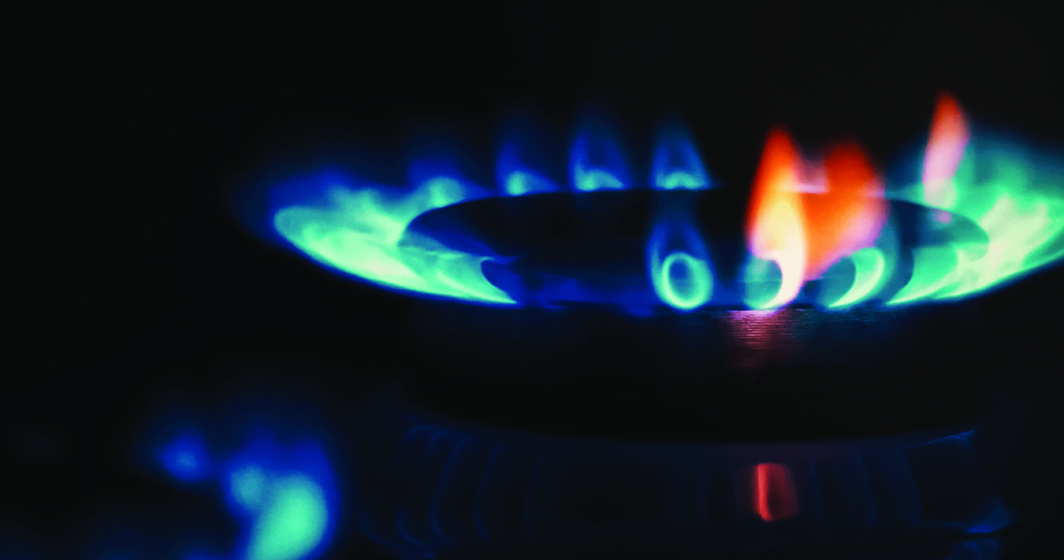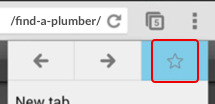In the race to sustainability, the Victorian Government must not ignore an efficient and effective power source that could make gas a clean, green option.

In July, the Victorian Government announced that, from January 2024, planning permits for new homes and residential subdivisions will only connect to all-electric networks. Providing just six
months’ notice before the implementation of a major reform - effectively banning gas in new future domestic builds - catching industry stakeholders including Master Plumbers significantly off guard.
“The announcement did blindside us, there was very little prior information, which is quite unusual for something like this, and nothing in the way of consultation. We are still in a position where a lot of the specifics are quite unclear,” says Master Plumbers’ Chief Technical Adviser Gary Bath.
Victoria has the highest use of residential gas in Australia, with around 80 per cent of homes connected
While the Victorian Government’s Gas Substitution Roadmap, published in 2022, had already established that the shift away from natural gas was a priority over coming years, and the new laws follow last year’s reform that removed the mandatory requirements for reticulated gas connections for new homes, Master Plumbers believes the decision to fast-track the ban is premature.
“In Victoria, we’re only producing a third of our electricity sustainably through wind and other means. We certainly thought that by the time these changes were to be introduced, we would have been further down the path of sustainable electricity,” says Gary.
“That’s still a lot of coal being burnt, and a lot of natural gas being burnt, to generate electricity. You don’t have to be Einstein to work out that if we’re going to have more appliances that are going to be relying on electricity, that’s going to be an increase in the total energy use at a time when you would argue we’re not really in a position to be able to produce that sustainably.
The new laws will impact not only new homes, but also all new public buildings that haven’t reached design stage. This impacts schools to hospitals, police stations and other government-owned buildings.
In its announcement, the Victorian Government highlighted that going all-electric will save households up to $1,000 on their annual energy bills, while working towards the state’s targets to reduce emissions by up to 80 per cent below 2005 levels by 2035 and to net zero by 2045.
Victoria has the highest use of residential gas in Australia, with around 80 per cent of homes connected. The entire gas sector contributes about 17 per cent of the state’s emissions with domestic use accounting for about 2 per cent of this total.
Gary points out that the state’s southern position means households rely on more heating in winter than other parts of the country.
“We are a lot cooler than some of the northern states and by necessity we really rely on effective and efficient heating during the winter months. We need to have access to that in a sustainable and cost-effective way, and the answer isn’t always on the electrical side of things.”
One of Master Plumbers’ key concerns with the short notice is a lack of understanding about how the new laws will be adopted by local councils.
“We certainly need a lot more information about the process because it’s still not 100 per cent clear whether this is something that’s going to be easily integrated by local councils who are the first port of call when it comes to planning permits,” says Gary.
The Industry is being asked to wade through these changes, and what it means is that there will be housing developments in some cases where they may already have reticulated gas supply. The potential outcome is that half a housing estate, depending on the status of the planning permit, doesn’t get access to gas.
Sub-divisions are also subject to the laws, which poses questions about what the changes will mean for neighbouring residences.
With the plumbing industry at the forefront of the clean-energy transition to a low-carbon economy, Gary says the Victorian Government’s investment of just $1 million towards targeted training to ensure the construction industry is supported in the transition to all electric and seven-star homes is inadequate.
“It’s a very small amount, it’s easy to suggest that this decision was made without any thinking about the true cost. Ultimately, we need to understand what we’re actually trying to address here and what the industry needs to retrain in.”
Master Plumbers has long recognised the vital role the plumbing industry plays, and will continue to play, in developing and maintaining public health and ensuring the environmental sustainability of communities. In its Plumbing Industry Priorities document, it highlights that the Victorian economy is extremely gas reliant and that the plumbing industry will play an integral part in the development of the clean economy. Across five Plumbing Industry Climate Action Centre (PICAC) campuses around Australia, Master Plumbers is supporting the next generation of plumbers to develop vital skills in sustainable plumbing.
Master Plumbers’ submission to the Victorian Government’s Gas Substitution Roadmap reiterated that hydrogen is a potential gas replacement, which must be part of the transition arrangements, and that the state has the existing resources and infrastructure to make hydrogen uptake a reality (see sidebar).
“There needs to be alternatives [to gas] now, as the reality is that until we get a cheap and sustainable electricity supply, to simply take gas away as an option is inefficient and not cost effective in the longer-term.”
Master Plumbers regularly shares updates and answers to frequently asked questions about the impending gas ban on its website and is encouraging members to stay informed and to support clients.
“We will be publishing a fact sheet that our members can pass over to consumers, to help them make a more educated assessment of what their needs might be,” says Gary.
“Our biggest fear is that there’s going to be a lot of gas appliances needlessly removed from houses because of the fairly aggressive campaign against them in the journey towards electrification. We encourage people who are contemplating changing appliances to weigh up what their options are, because given their unique situations that may well be more cost effective and more efficient to stay with what they’ve got in some cases.
“For instance, for someone who has a holiday house, there is not much point paying for storage, heated hot water that they are not going to use. They are probably better off sticking with a demand type system that will be cheaper and more efficient, and probably more greenhouse friendly than something that’s operating or turning on or off every day with no use.
“Our members are out there every day, helping people make decisions about what is best for their needs cost in terms of cost effectiveness and sustainability.”
The renewable gas opportunity With hydrogen widely acknowledged as potential gas replacement, there has been an expectation that Victoria could utilise its extensive natural gas network, which is one of the biggest in the world, to store and transmit a blend of hydrogen and natural gas or 100 per cent hydrogen.
“It’s certainly possible for that to happen, there are ongoing projects here in Australia such as in South Australia’s Mitchell Park, where they’re blending increasingly higher amounts or percentages of hydrogen into the natural gas system,” says Gary.
“Biogas can be similarly sustainably produced and has very little impact greenhouse gas wide as an alternative to natural gas. The technology suggests that you can have electrolysis producing hydrogen at a local or domestic level - you can buy an electolyser that produces hydrogen gas which is the size of a suitcase.
“That sort of technology means a domestic house doesn’t have to be necessarily on-grid in terms of a gas supply, it can be producing its own gas at a local or estate-type level.”
While it’s unclear what the impending gas ban will mean for Victoria’s hydrogen future, Gary says the momentum built will continue.
“There’s an increasing amount of interest in hydrogen appliances in Australia, with a number of appliances up for certification. At the end of the day, if they’re built, people will adapt to them.”
Meanwhile, overseas there is around 18 GW of installed power generation capacity running on biogas around the world, most of which is in Germany, the United States and the United Kingdom. And here in Australia, Sydney’s Malabar Biomethane Injection Plant is taking sewage, purifying it and injecting it back as gas into the network for use in stoves and heaters.
The trial, a partnership between Energy giant Jemena and Sydney Water is tracking to produce enough gas to meet the yearly needs of 6300 homes.
“The more we work toward a diversity of sustainable gas options as an industry and as a community, the more impact we will have on climate change and the more choice consumers will have,” Gary says.
Share this Article






